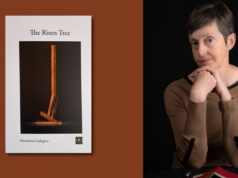The Nobel Prize for Literature has found itself mired in yet more controversy following the resignations of committee members Kristoffer Leandoer and Gun-Britt Sundström. “I leave my job in the Nobel committee because I have neither the patience nor the time to wait for the result of the work to change that has been started,” Laendoer announced to Swedish newspaper Svenska Dagbladet.
Both resignations add to what has been a bruising time for the reputation of the prize in recent years. The decision in 2016 to award the honour to Bob Dylan was praised by some and criticized by many in the field as a dumbing down. The 2018 award was postponed due to a slew of sexual assault allegations against the husband of an academy member, which precipitated another round of resignations. Interim permanent secretary, Anders Olsson, said at the time that the postponement decision was taken because it was ‘necessary to commit time to recovering public confidence … This is out of respect for previous and future literature laureates, the Nobel Foundation and the general public.”
The laureate that was to follow in 2019, however, created further consternation when it was revealed as Peter Handke. The Austrian author was honoured for work of “linguistic ingenuity” that the committee felt “explored the periphery and the specificity of human experience.” Handke, who spoke at the funeral of war criminal Slobodan Milosevic, is also known for his denial of Serbian atrocities in the Balkan wars. It was this award which led to the resignation of Sundström.
The turbulent waters of the Swedish Academy reached Irish shores earlier this year when John Banville was the victim of a hoax caller, telling him he had been awarded the honour. The caller impersonated Mats Malm, permanent secretary of the Swedish Academy, and was calling from the number of the Swedish Academy offices. It is believed that the hoax was most likely driven by a grievance against the Nobel rather than the multiple award-winning Irish author.












